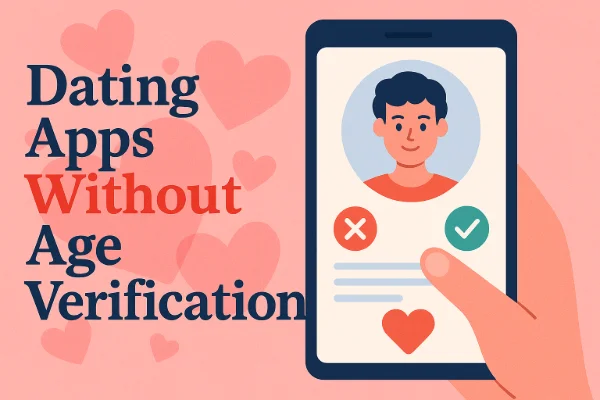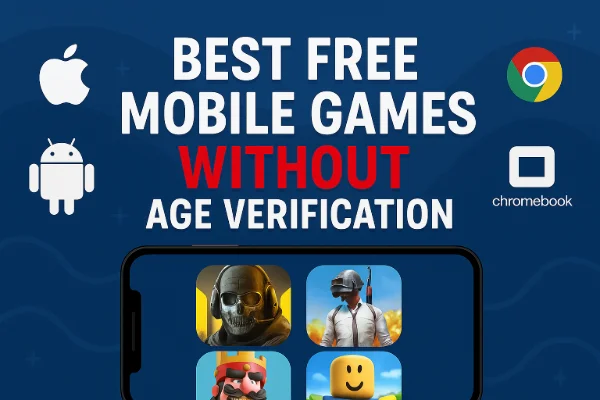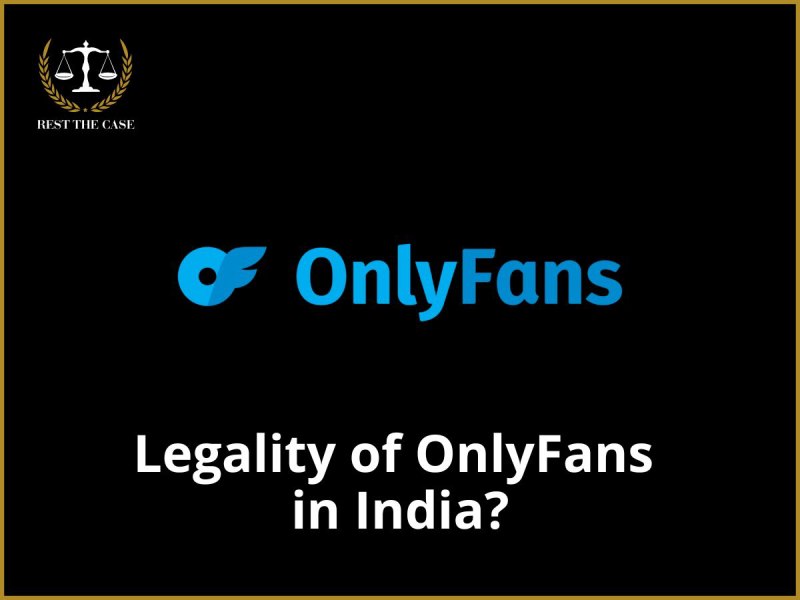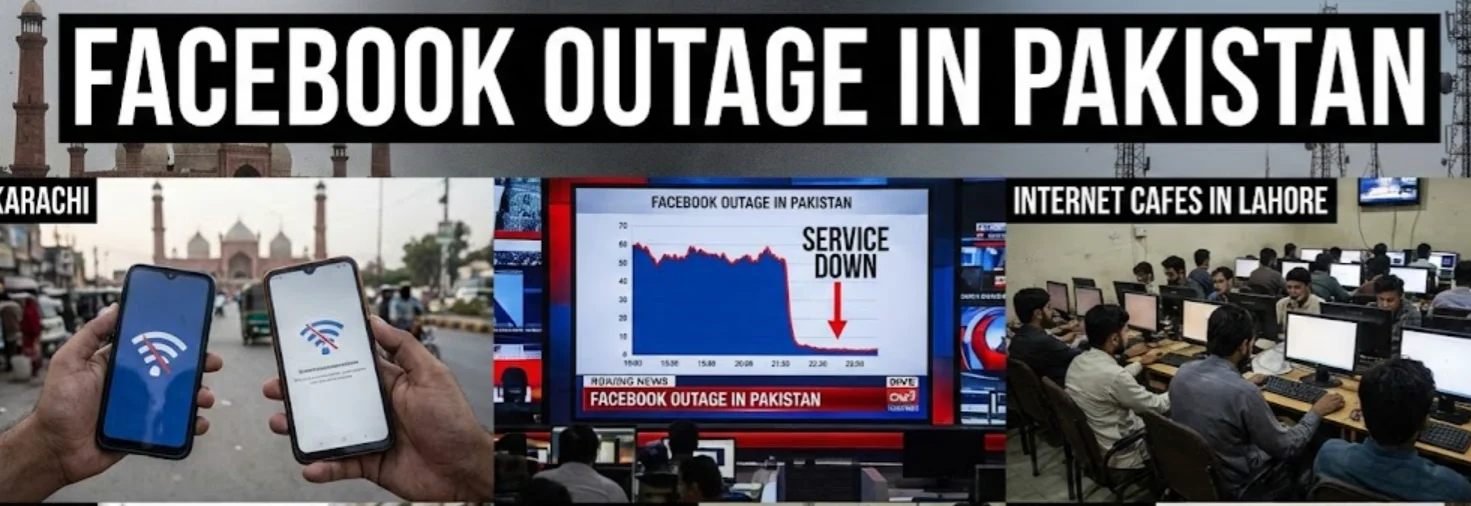What Are Age Verification Laws?
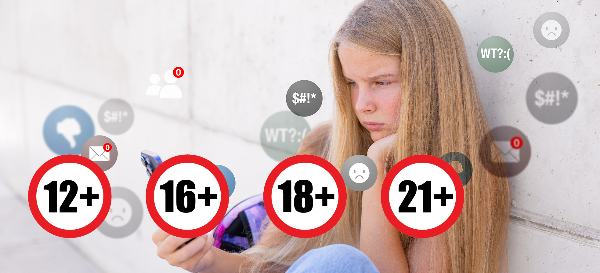
Age verification laws in the U.S. are designed to restrict access to adult content for users under 18. The first major law appeared in Louisiana in 2022, requiring adult websites to verify users’ ages through government-issued digital IDs. Since then, similar laws have spread across multiple states, including Utah, Mississippi, and Virginia.
These laws typically require websites that feature one-third or more “harmful to minors” content to verify user ages using approved methods. Failure to comply can lead to civil fines, lawsuits, and even potential criminal penalties.
However, critics argue that while the goal of protecting children is valid, these measures create significant privacy risks. Uploading a driver’s license or ID to a website exposes users’ personal data to potential misuse, breaches, or tracking by third parties.
Which Websites Are Affected?
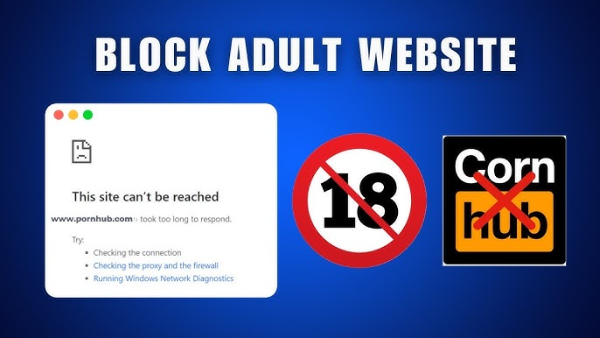
Age verification requirements apply mainly to adult websites that host explicit or mature content. However, the broad wording in some state laws means that other platforms could also fall under these rules if they include large volumes of user-generated or “suggestive” content.
This uncertainty has led to confusion among both content creators and users. In states where these laws are active, sites like Pornhub have responded by blocking access entirely, showing messages such as “This site is not available in your region.”
With free proxy VPN in UFO VPN, users in affected regions can still access the internet freely and privately, connecting through secure servers in countries without such restrictions.
What Happens When Websites Don’t Comply
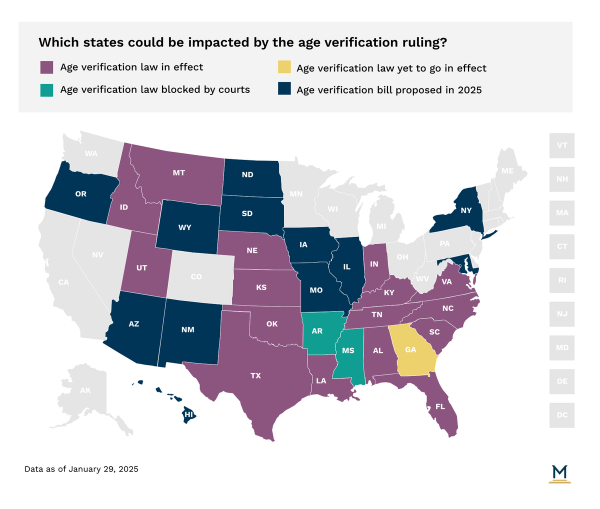
Websites that fail to implement age verification face harsh penalties:
-
Fines and Lawsuits:
Noncompliant sites can be fined up to $5,000 to $10,000 per day in states like Texas or Louisiana. In some cases, they may also be sued by individuals or the state attorney general. -
Access Bans:
To avoid legal liability, some websites—such as Pornhub and other major adult platforms—have opted to block traffic from entire states rather than risk violating the law. -
Legal Action:
In 2023, Texas Attorney General Ken Paxton sued Pornhub’s parent company (Aylo) for noncompliance, demanding daily penalties for each day of violation. -
Criminal Proposals:
Some state legislatures, including Indiana and Tennessee, have discussed introducing criminal penalties for site owners who knowingly fail to verify user ages.
These measures have intensified the debate over whether regulation should prioritize child safety or digital freedom.
Why States Are Enforcing Age Verification
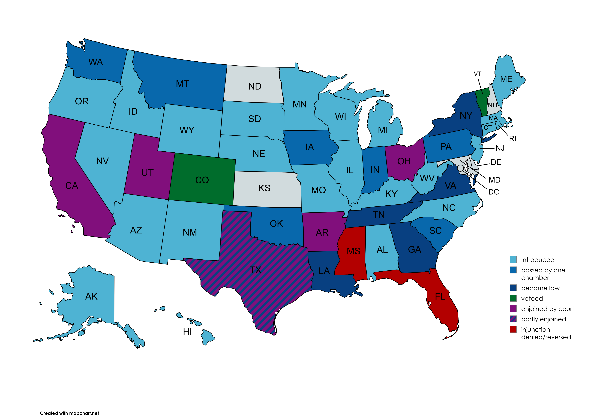
The push for age verification laws reflects growing pressure from parents, advocacy groups, and legislators who view online pornography as a public health crisis. They argue that unrestricted access to explicit material can negatively impact minors’ mental health, body image, and sexual development.
Supporters claim that verifying users’ ages is a necessary step to modernize internet safety laws, especially since self-verification (“I’m over 18”) has long been ineffective.
However, critics—including civil liberties organizations and cybersecurity experts—warn that these laws could lead to:
-
Mass surveillance: Governments or third parties may collect and store users’ data.
-
Identity theft risks: ID-based verification increases exposure to breaches.
-
Censorship concerns: Sites may over-censor to avoid legal risks, reducing adults’ freedom to access lawful content.
Now, several states—including Florida, Idaho, and South Dakota—are preparing new bills modeled after earlier examples, further expanding the reach of these laws.
Are Age Verification Laws and Social Media Laws the Same?
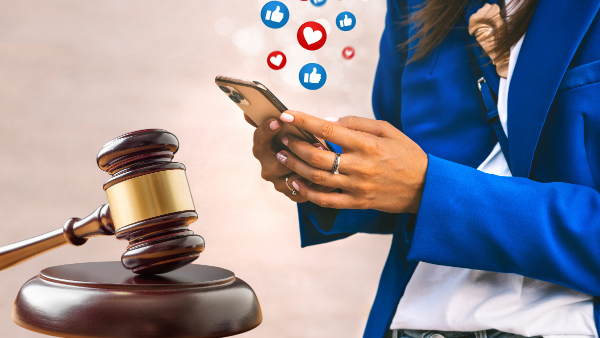
Not exactly—but they’re closely related.
Many states are also introducing “minor protection” or “social media access” laws, which require platforms like TikTok, Instagram, or YouTube to restrict minors’ access or obtain parental consent.
While both types of laws aim to protect children online, age verification laws primarily target adult-content websites, whereas minor access laws target general social media use.
This convergence of regulations suggests that the U.S. is entering an era of stronger digital gatekeeping, where both adult and youth content are increasingly monitored and restricted.
Privacy tip: To prevent unnecessary data exposure when browsing, use UFO VPN to encrypt your internet connection and hide your location. This ensures your data stays private, even if you visit sites requiring verification.
States with Active or Proposed Age Verification Laws (2026)
| State | Law Status | Enforcement Type | Notes |
|---|---|---|---|
| Louisiana | Active | Digital ID required | First to implement law in 2022 |
| Texas | Active | ID verification or block | Aylo lawsuit ongoing |
| Utah | Active | ID and device verification | Adult sites blocked |
| Virginia | Active | Self-verification invalid | Civil fines for noncompliance |
| Arkansas | Active | 33% content rule | Similar to Louisiana’s approach |
| Florida | Active | In progress | Rollout mid-2025 |
| Idaho | Pending | Legislative review | Draft modeled on Utah law |
If you’re traveling or living in these states, UFO VPN allows you to connect through another region’s secure server—so you can maintain private access to global websites without restrictions or exposure to local data laws.
Critics and Legal Challenges
Opponents of these laws argue that they violate First Amendment rights by restricting adults’ access to lawful content. Several lawsuits are already underway:
-
Free Speech Coalition vs. Louisiana (2023): Claimed the law chills legal expression and forces sites to collect personal data unnecessarily.
-
Aylo vs. Texas (2024): Argued the state’s law imposes unconstitutional burdens on websites.
-
EFF (Electronic Frontier Foundation): Warned that age verification mandates could lead to long-term digital identity tracking and “soft surveillance.”
These challenges highlight the ongoing tension between protecting minors and preserving adult freedoms online.
How VPN Protects Your Privacy Amid These Laws
As more U.S. states implement strict content laws, users are turning to privacy tools like UFO VPN to regain control of their digital experience.
Here’s how UFO VPN helps:
-
Anonymous Browsing: Mask your IP address to prevent websites or ISPs from identifying your location.
-
Bypass Regional Blocks: Access restricted websites or streaming platforms from any country.
-
Data Encryption: Protect your browsing data from network monitoring or tracking.
-
Multi-Device Protection: Use UFO VPN across mobile, desktop, and smart TV devices simultaneously.
-
High-Speed Streaming: Enjoy unrestricted access without compromising performance or security.
💙Enjoy Surfing in 4 Steps:
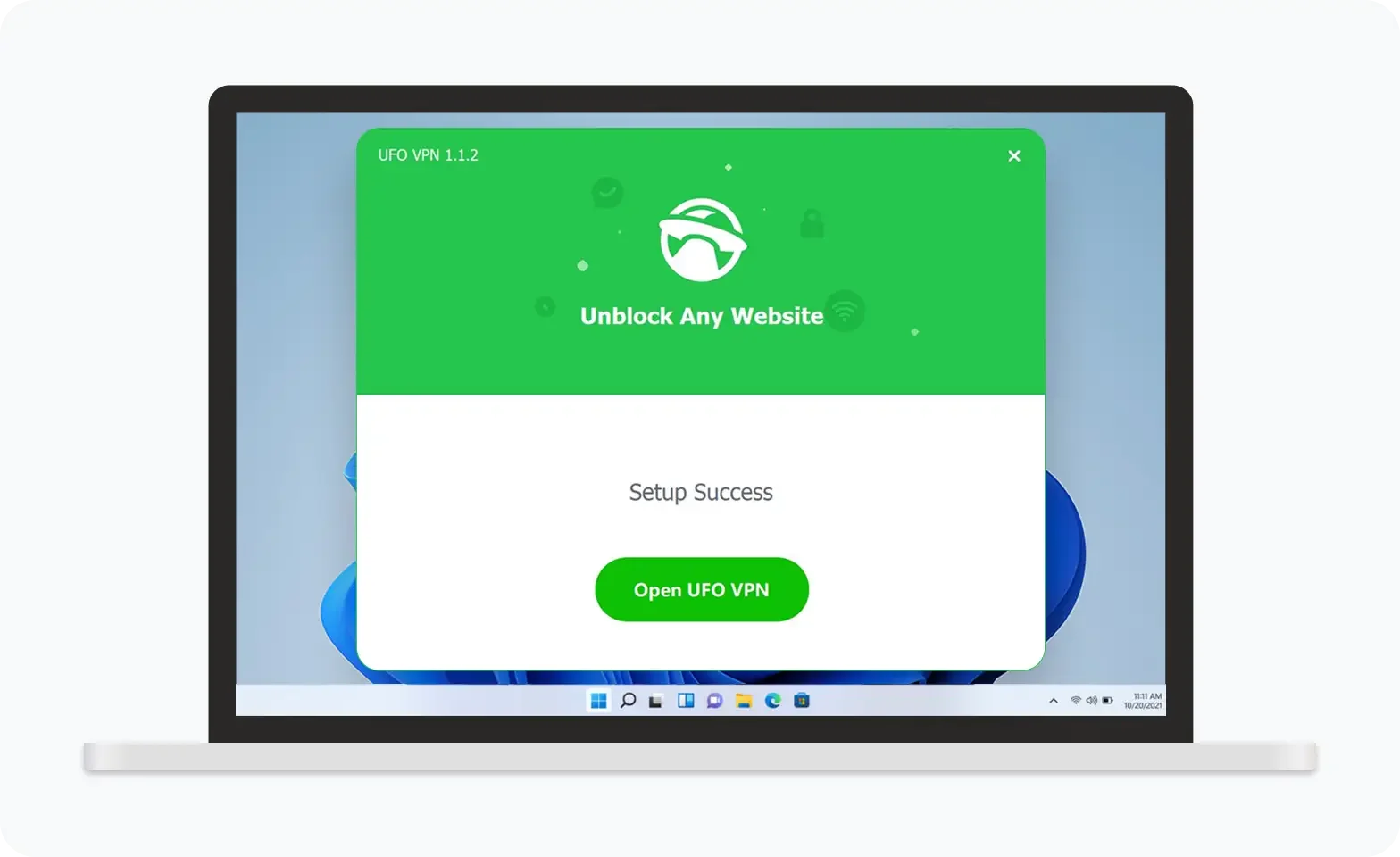
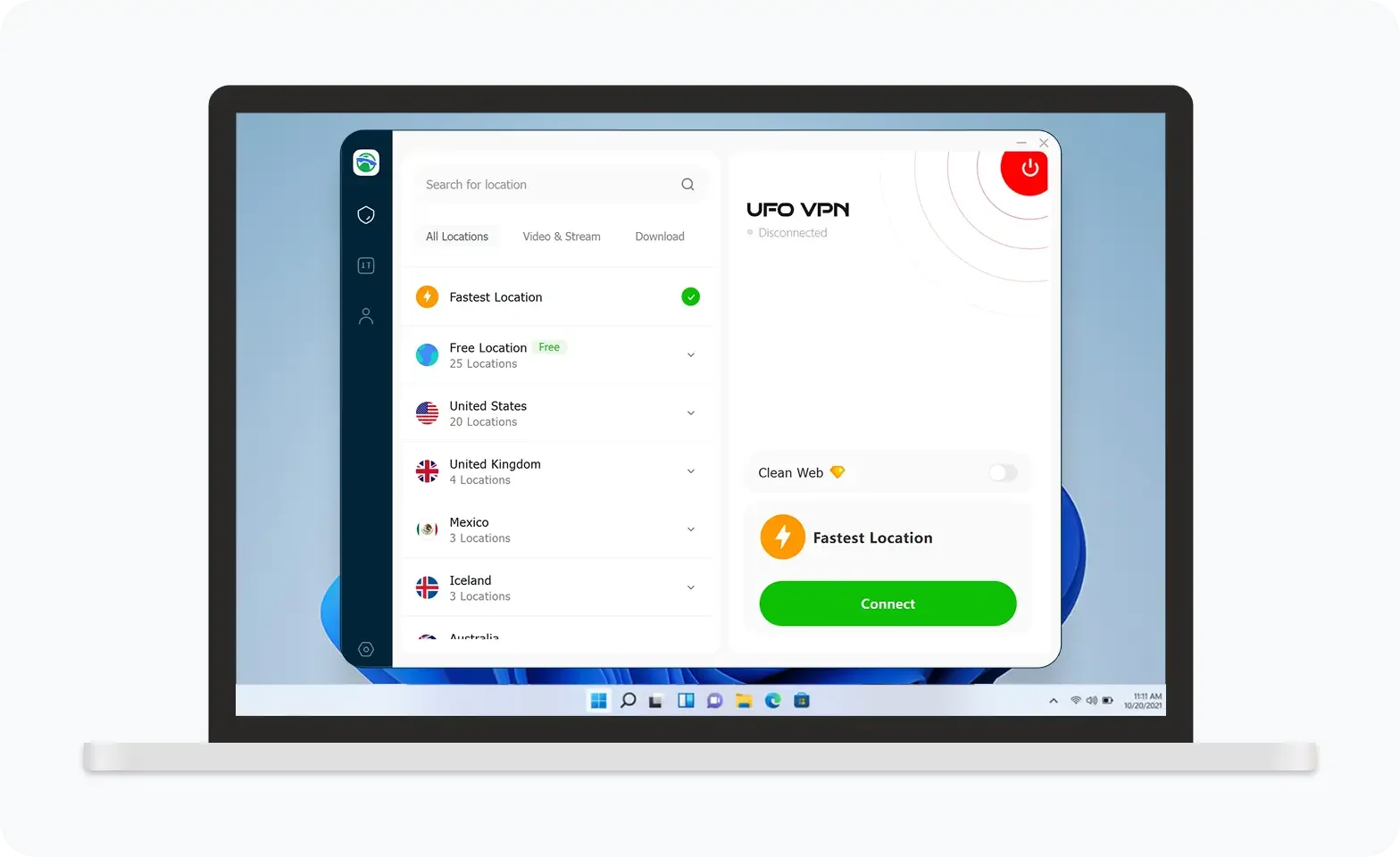
UFO VPN is an all-in-one VPN that offers unlimited access to 4D streaming like Netlfix, Disney Plus, no-ping gaming as PUBG, Roblox, CODM and social networking for YouTube, X, Facebook and more.
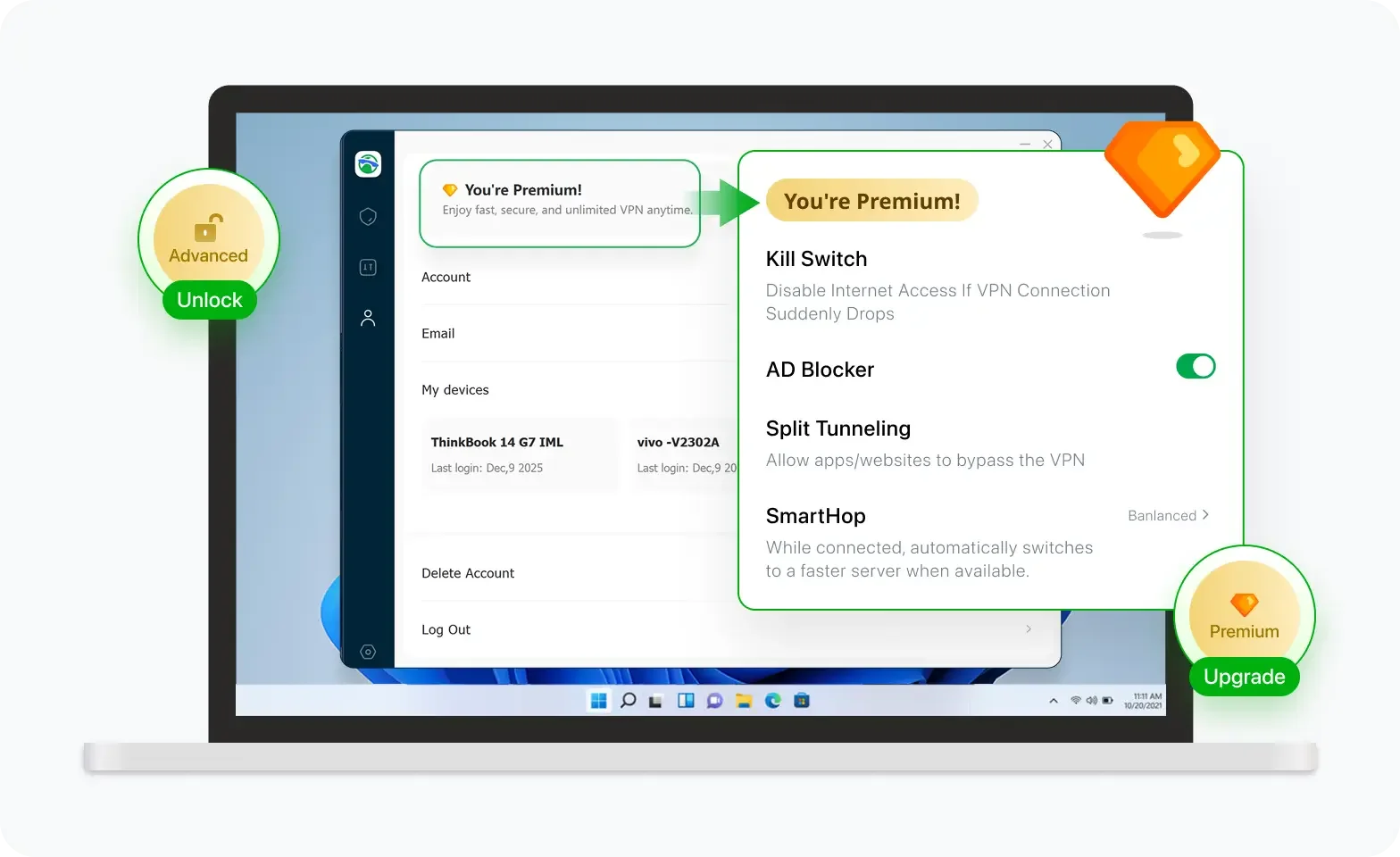
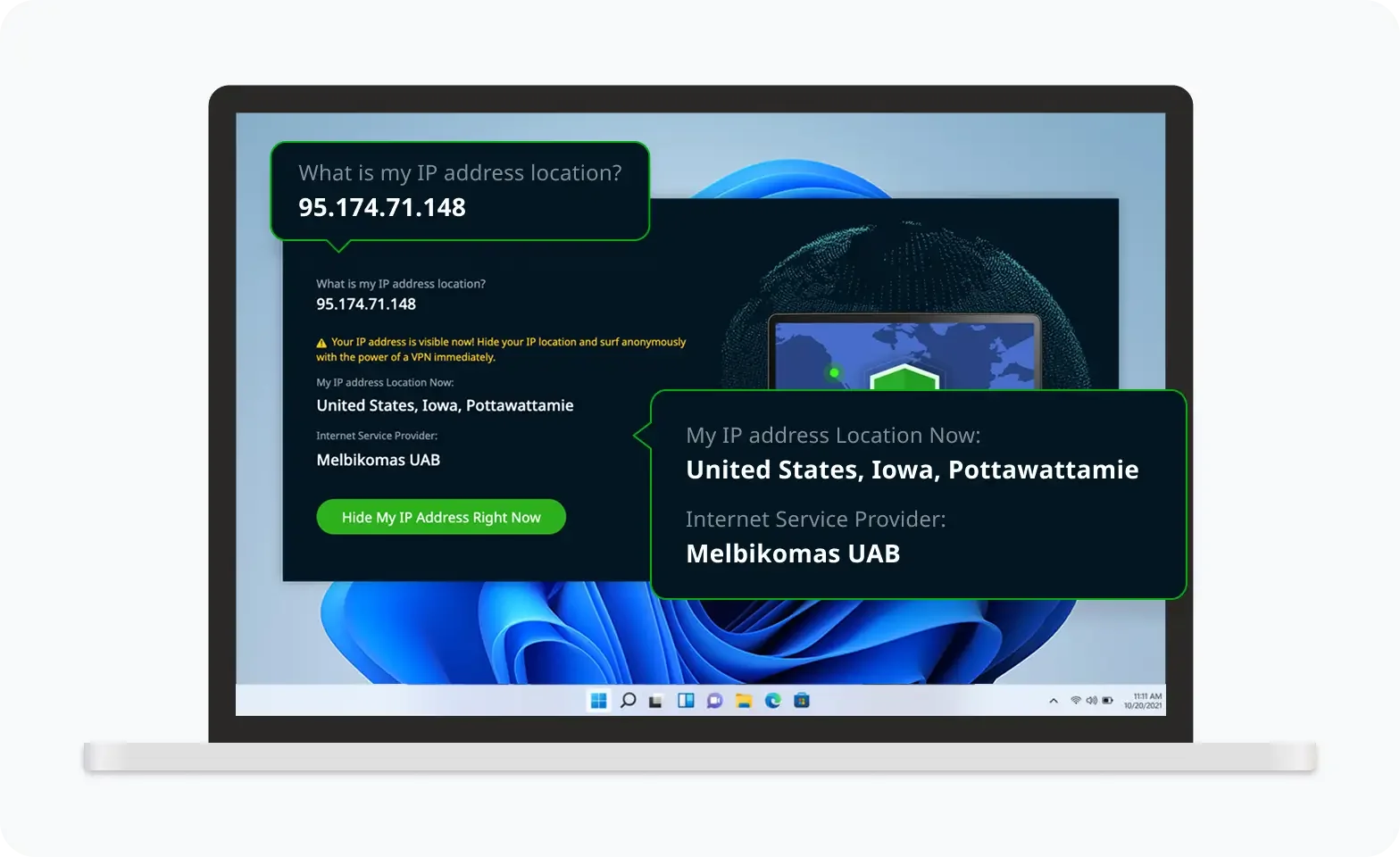
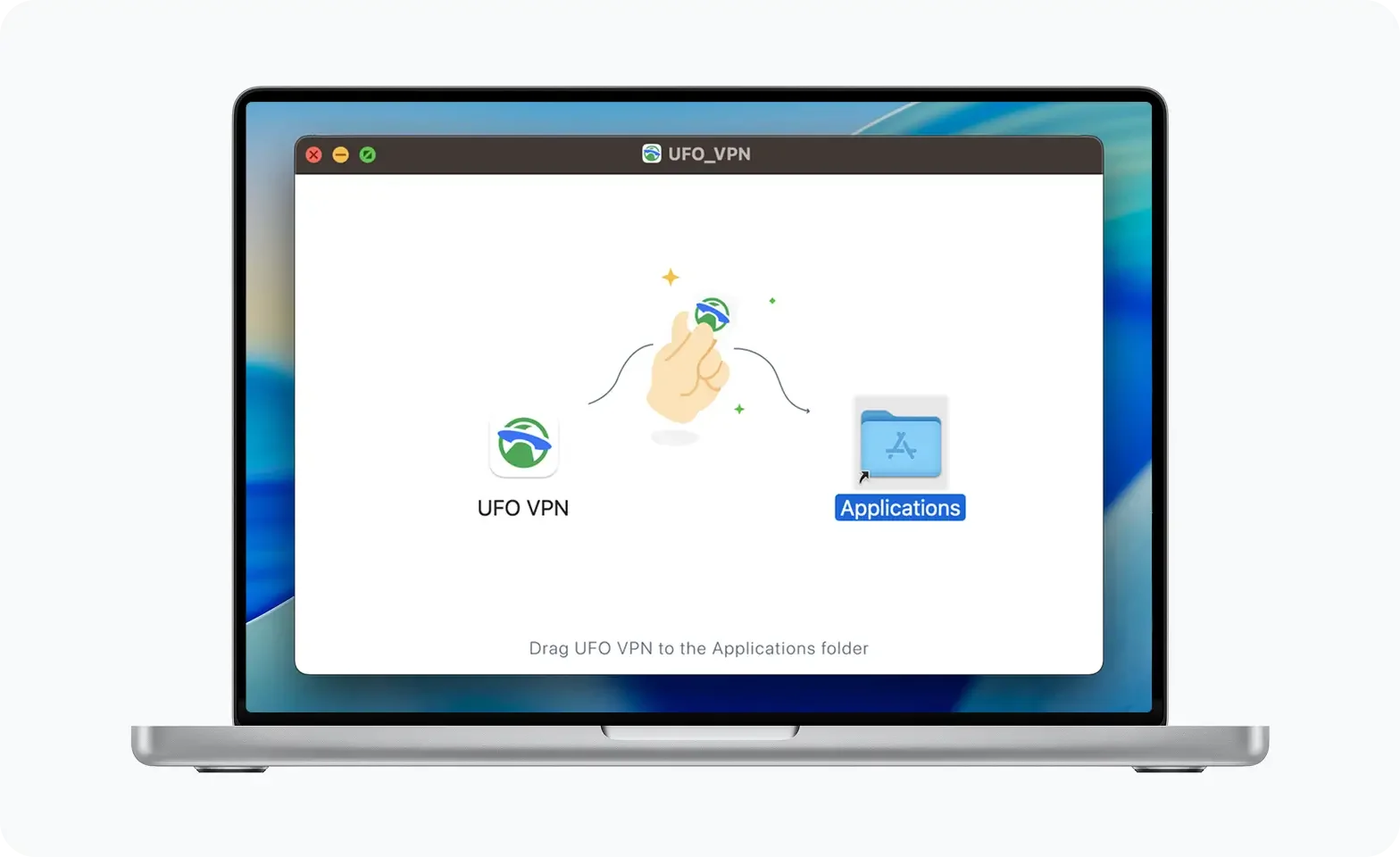
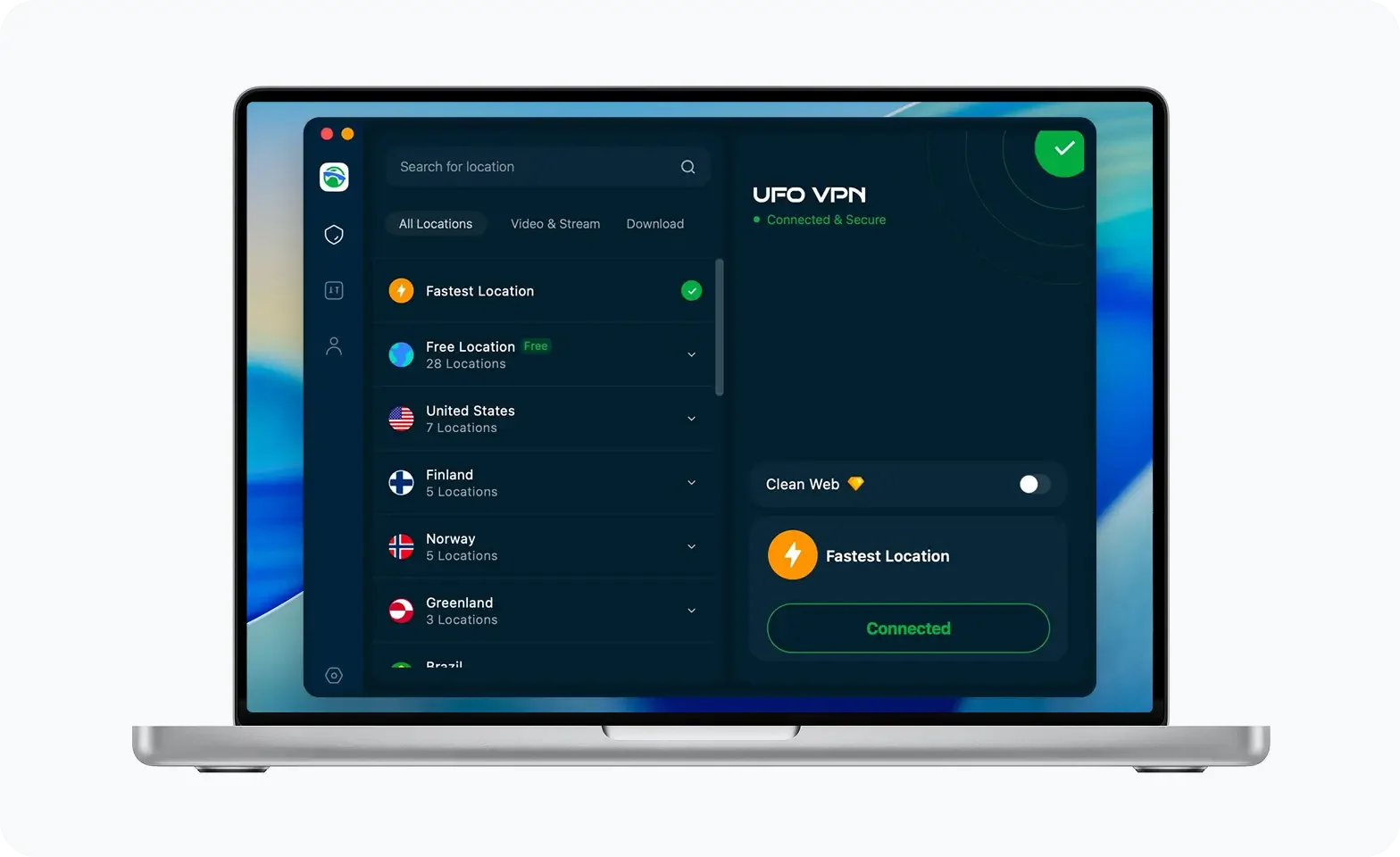
Unlock Pro Features
If you have upgraded to premium plan , feel free to enjoy premium servers for 4K streaming and advanced features like Kill Switch, Split Tunneling, and gaming acceleration. Your Mac is now fully optimized and protected. Inaddition to basic functions, we recommend you turn on

Verify Your IP Now
Use UFO VPN's " What is My IP " feature to see your new IP and location. This confirms your connection is secure, anonymous, and ready for safe browsing online anywhere at any time.

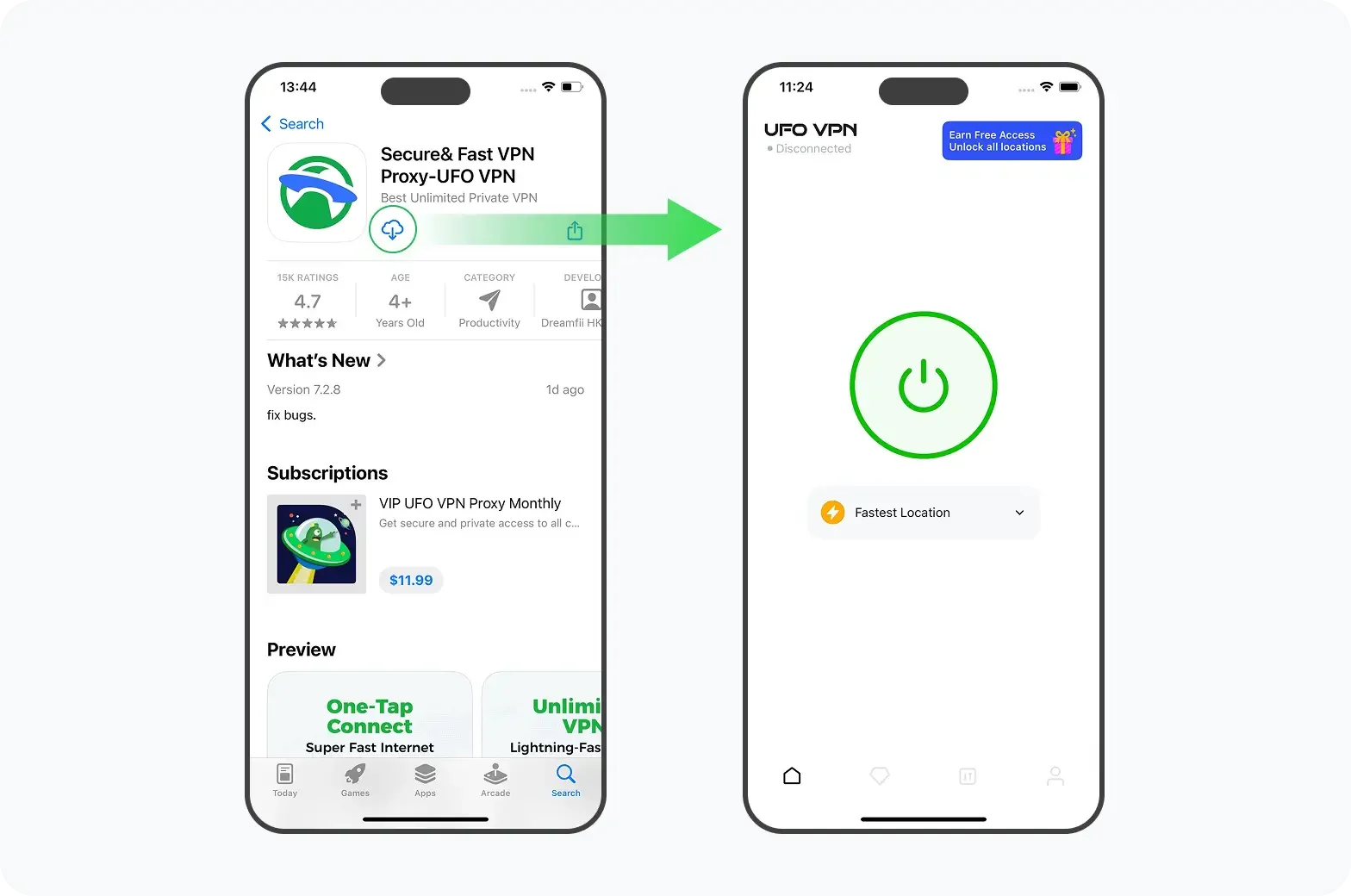
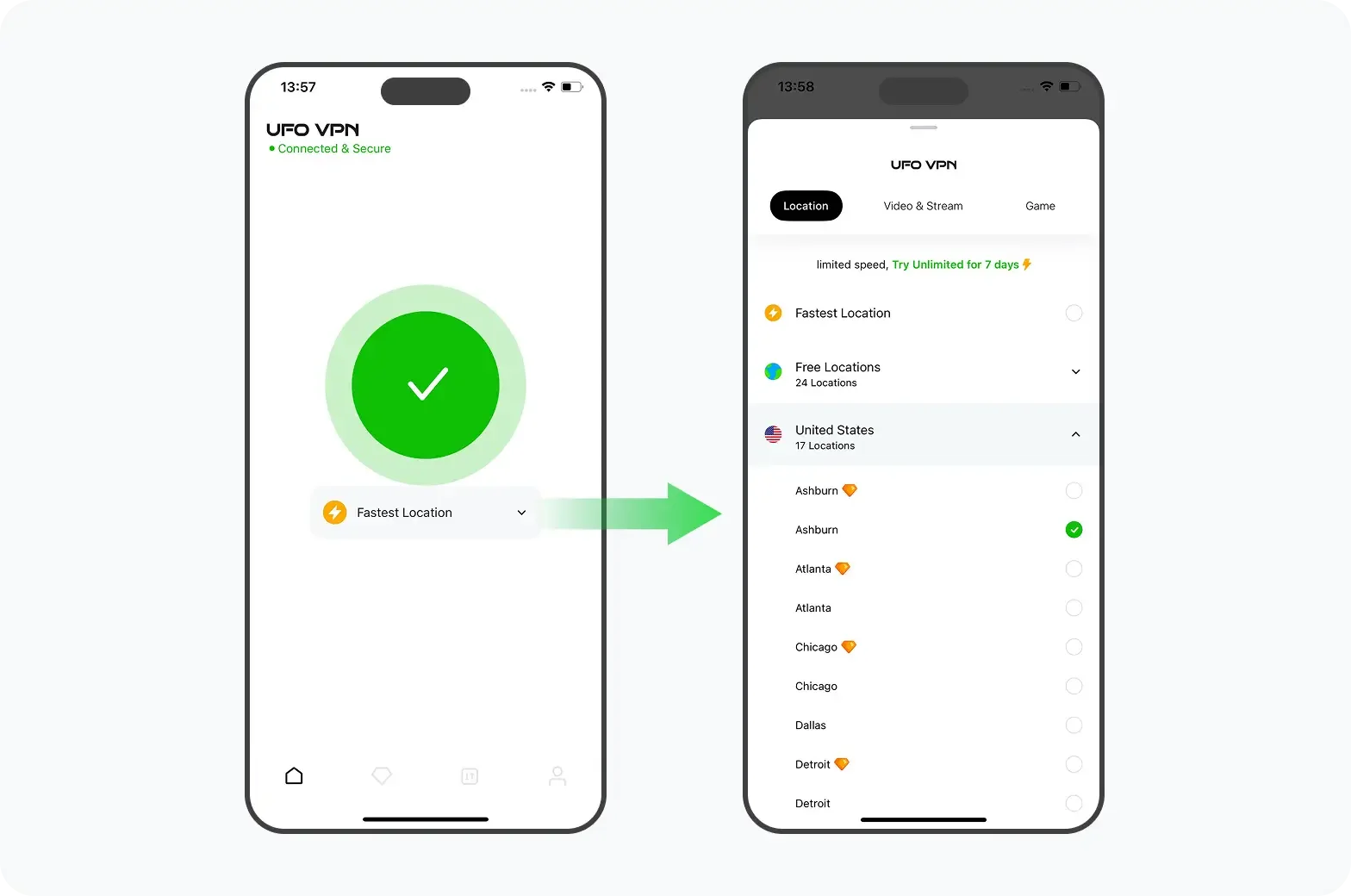
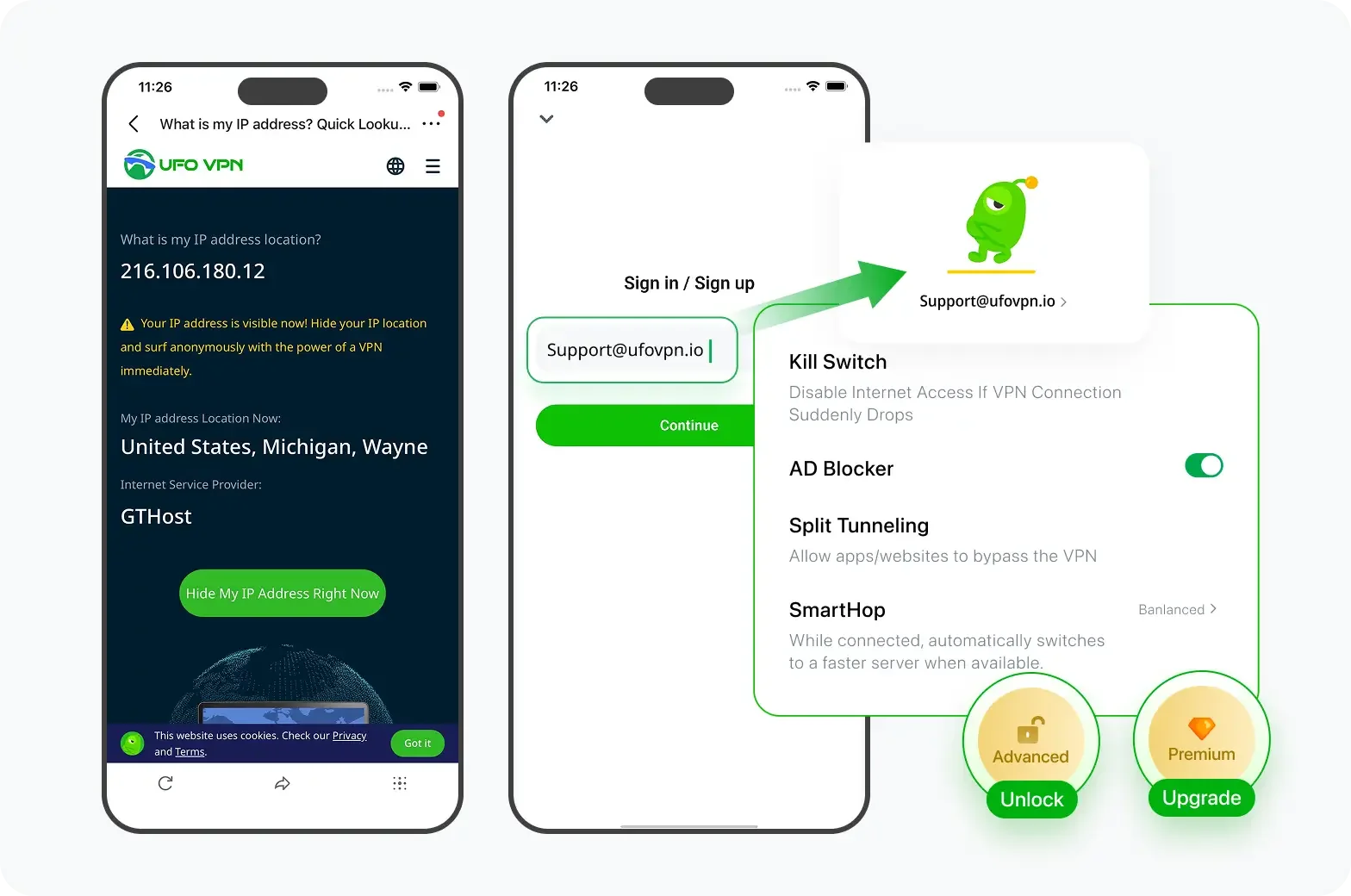
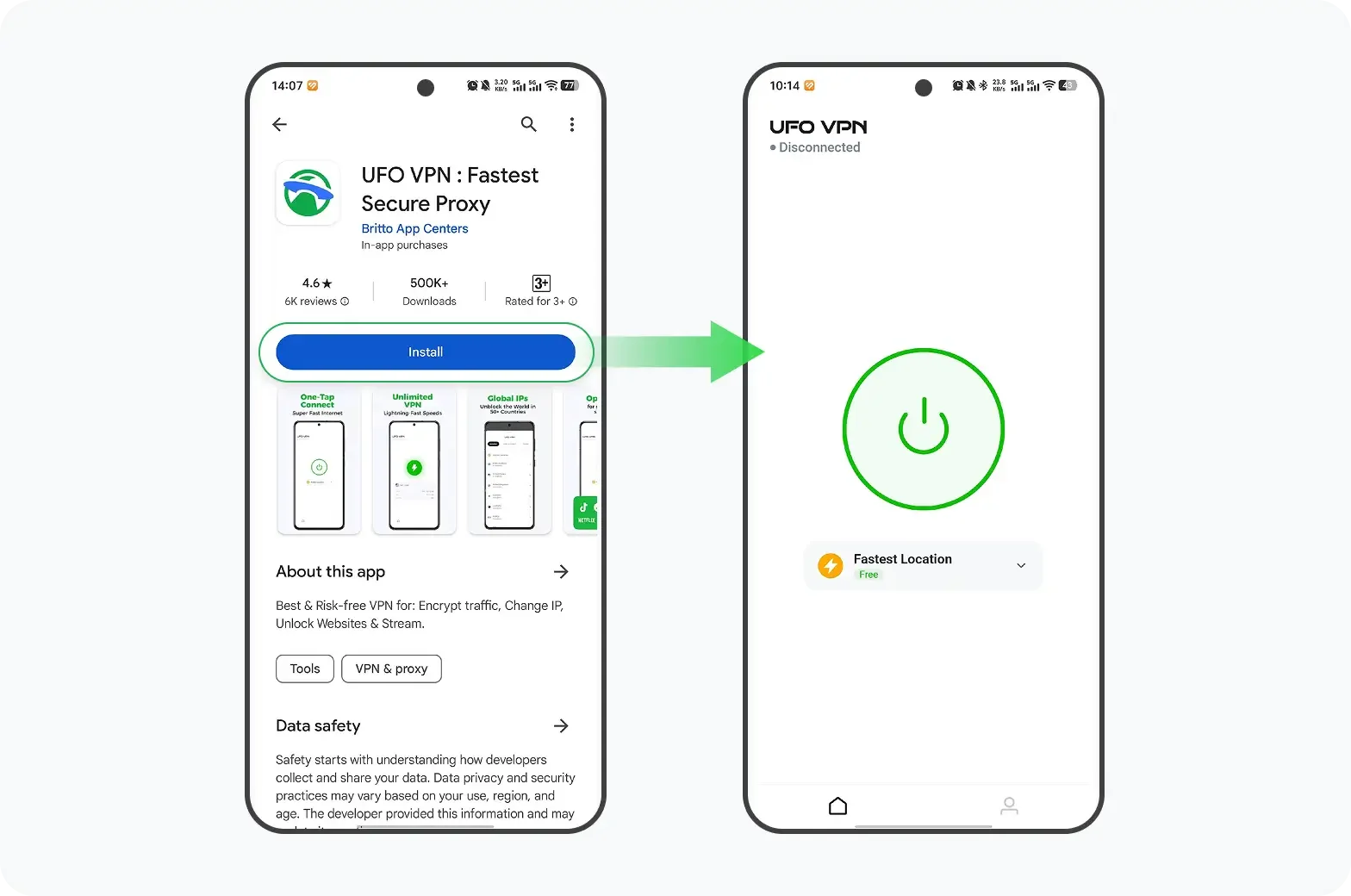
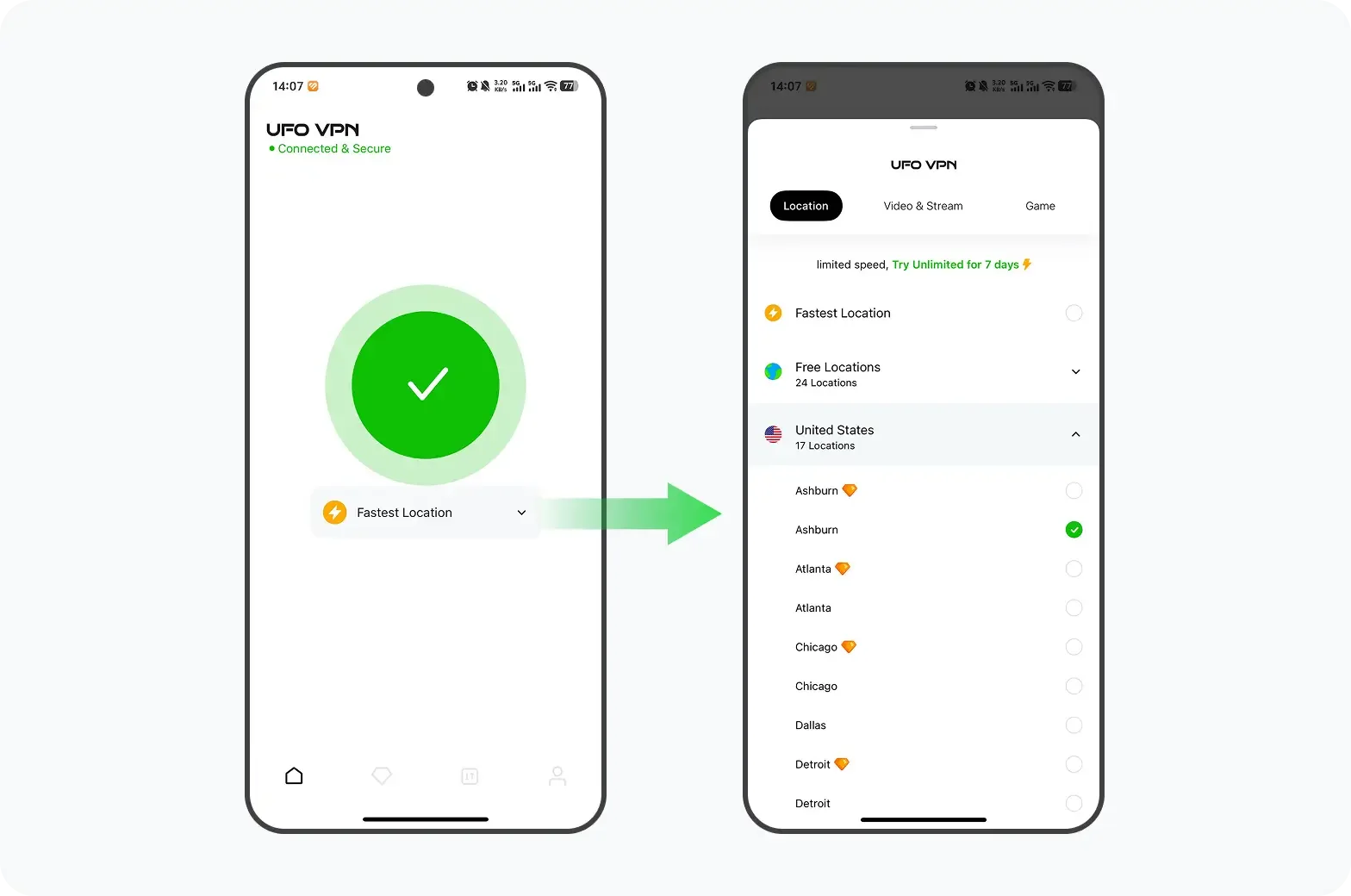
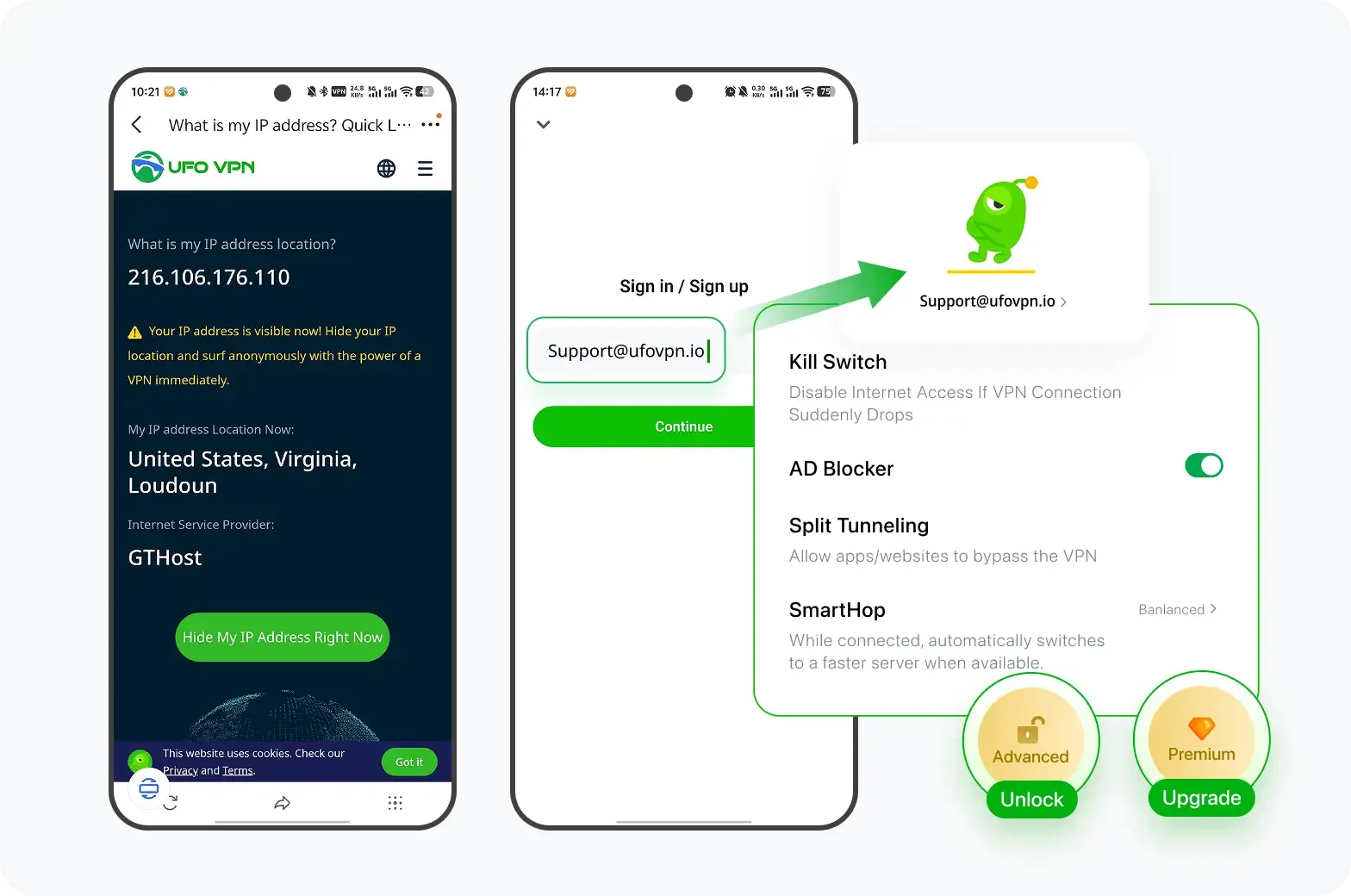
For instance, if you live in a state enforcing age verification laws, connecting through a UFO VPN server in another state or country lets you browse safely without exposing your identity or location.
FAQs
What are U.S. age verification laws?
They are state-level laws requiring websites with adult content to verify users’ ages through ID checks or digital verification to protect minors from exposure to explicit material.
Which states currently have age verification laws?
Now, states like Louisiana, Texas, Utah, Arkansas, and Virginia enforce them, with others like Florida and Idaho expected to follow.
Are these laws nationwide?
No, they’re state-specific—but momentum is growing for a potential federal approach if more states adopt similar models.
Are there privacy concerns with these laws?
Yes. Many users and digital rights groups worry about data storage, tracking, and breaches caused by ID-based verification systems.

